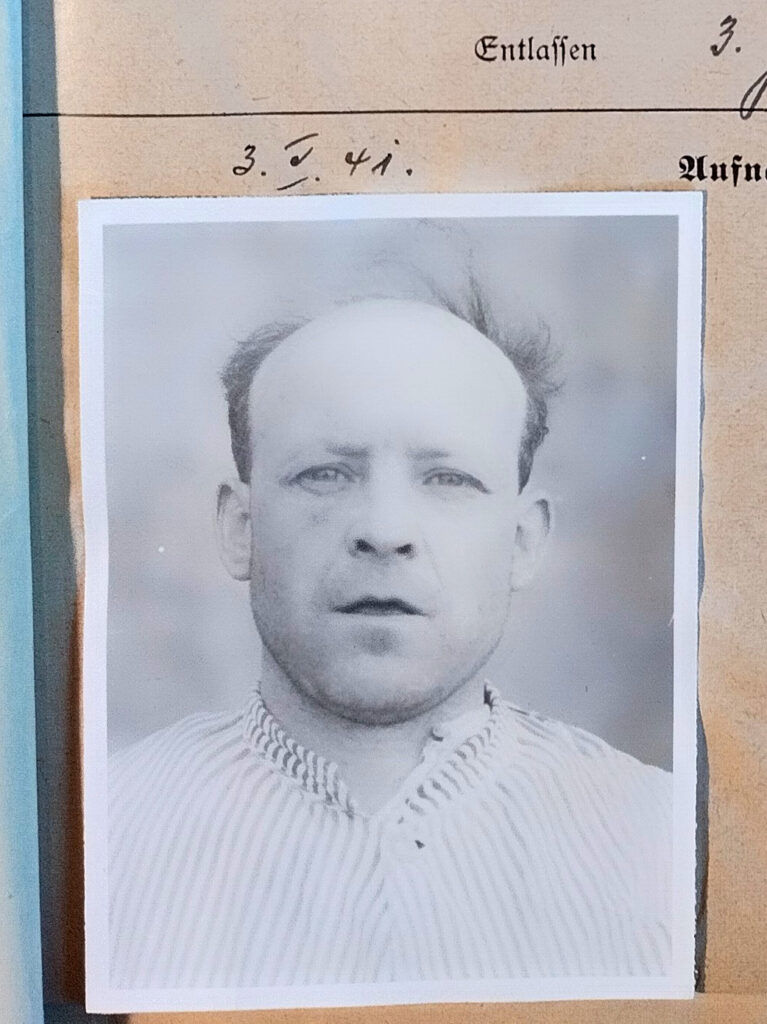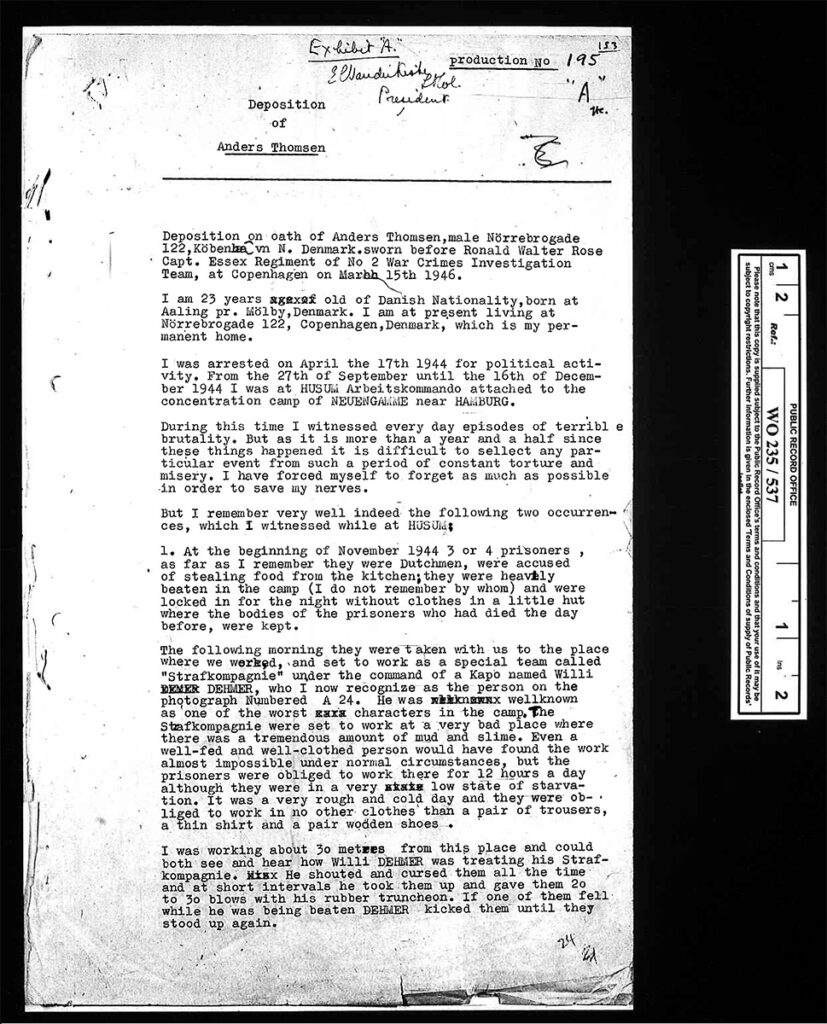Willi Demmer came from Hochheide in the district of Möhrs. His parents were Heinrich and Maria Demmer (née Hermanns). He had a sister, Auguste Jaeckel (née Demmer). Willi Demmer had difficulty learning and attended a special school. He later worked as a driller. He committed numerous thefts. Between 1922 and 1937, he received 33 criminal convictions. In 1940, he began serving a prison sentence in Wolfenbüttel. After two years, he was transferred to preventive detention. Because of his last place of residence (Hamburg-Reitbrook), he was to be admitted to the Hamburg-Langenhorn mental hospital. However, at his own request, he was admitted to the Lüneburg mental hospital. Marie Salau lived in Lüneburg and sent him love letters to the institution. Marie’s brother Robert was also in preventive detention. On March 31, 1944, Robert Salau and Willi Demmer were transferred to the Neuengamme concentration camp along with other prisoners in preventive detention. There, Willi Demmer rose through the ranks and became a »Kapo« (guard). As such, he used violence against other prisoners and accepted their deaths. After the war, he was interned in Rotenburg an der Wümme. He had to answer for his crimes as a »Kapo« before the British military court in Hamburg. He was found guilty and in mid-September 1948 was again placed in preventive detention at the Lüneburg mental hospital. Two weeks later, he was released. He moved to Gelsenkirchen, where he died on February 4, 1973.

